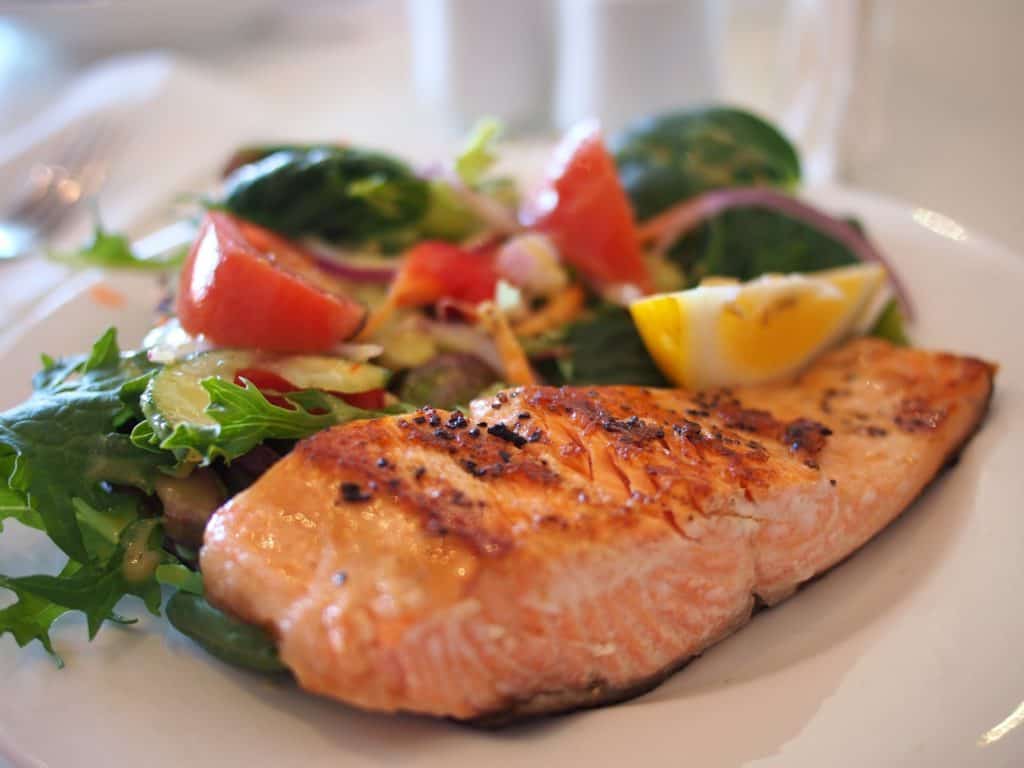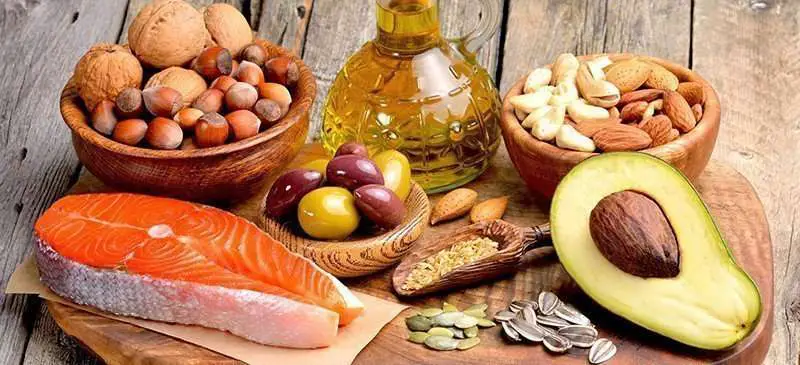Fasting: Older than Your Excuses
There is a lot of noise in the world of fitness with regards to nonsense trends. Some are diet based, others are exercise based, but the basics work for a reason. When it comes to diet, some of these trends flaunt their scientific badges, while others are as current and useful as yesterday’s sweaty socks (If the Marine Corps ever taught me anything it’s the importance of quality, clean socks). Then there are the dangerous masquerade of promising trends, dressing up disaster as your next quick-fix. Some of these trends might look promising today, but could turn out to be terribly harmful in the long run simply because they are based on old/outdated/nonsensical science that have little to no long term research.
Intermittent fasting (IF) is a decently researched topic that is popular with the fitness crowd currently. It has a pretty solid backing from sources over time reaching as far back at least until 1945 when scientists discovered that it actually extended the lifespan of mice.
Truth be told, fasting in general is as old as humanity and has numerous health benefits associated with it, so IF is most likely NOT ever going to be included in the ‘harmful fad’ category. Especially since IF doesn’t necessarily restrict calories or food groups any more than any actual diet does. As a matter of fact, IF by itself is not so much a diet as it is a method of when to eat.
Essentially, IF is based on cycles of eating and fasting (obviously). You only eat during a certain period of the day—the rest of the day you fast. Easy concept, right? If you have decent self control it’s not ‘hard.’ I mean, you are already doing it to an extent when you sleep. People who practice IF just extend out that 6-8 hour fast (if you are lucky enough to get 8 hours a night) a bit longer on a fairly regular schedule.
Does Intermittent Fasting Work?
This isn’t about starving yourself, as you may hear people with no self control or idea how their bodies work claim. It’s a series of strategic moves to position yourself into increasing your metabolism. Your insulin levels nosedive while your growth hormones and Noradrenaline levels blast through the roof. This weighs in as a win for your metabolic rate, which surges by an impressive 3.6-14% depending on how long your fast is.
The differing levels of these chemicals lead to weight loss because they help to speed up the breakdown of fatty tissues in your body, which are then used as energy.
Plus, when your body has to constantly process new foods you are consuming it has to hold back on performing other processes it would rather do such as breaking down dead/dying cells and tissues, removing toxins, and making your body run more efficiently.
Bodily changes during a fast

Your body prefers to use carbohydrates in the form of glucose as fuel, but when you do not eat anything you begin to run low/out of glucose. It still needs fuel so what does it do? As the clock hits the 12-hour mark without food, your body rolls up its sleeves and begins to step towards ketosis (although you won’t achieve full ketosis at this point). Your body starts looking for other fuel sources and focuses on fat stores. Think of this as your body’s own fat-busting mode where it starts chowing down on fat for fuel, churning out ‘ketones’ — chemicals made from the fat in your liver.
These ketones are less prone to causing inflammation than glucose and the amount of energy in a gram of fat is more than double what you find in a gram of carbohydrate. That means you’ll feel sharper, clearer, and probably more energetic in the short term.
18 hours in, when most IF adherents typically end their fast, you’re riding a wave of ketones. Their production peaks and your body turns into a high-performance machine, fixing and tinkering with various parts of your body. It can knock out those crucial tasks it had to shelve while it focused on processing food in your digestive tract.
An Add-on Module for Your Existing Diet
IF is not magic. Intermittent Fasting should be seen as a tool to supplement your already-established diet for best results. ‘Doing’ IF does not mean you can solely eat cake, pizza, and French fries (with a diet soda, of course!) during the eating window. You must still eat the right foods, in the right proportions, that will help you on your journey towards your fitness goals.
Quality whole foods based meals still matter.
How Do I fast, Intermittently?
The basics of intermittent fasting are simple: Eat for a short period of time during a 24 hour period and fast the rest. The entire concept is the same as a traditional fast, just for a shorter duration than old school 3/7/14/21 day, water only type fasts.
If you decide to try out IF, consider one of these two options:
Need some help?
Shape Success, Live Exceptionally
Hit that button, and get started today.
Shorter duration fasts
Shorter daily fasts. You don’t eat anything for 16 hours. The other 8 hours are your eating window. During that 8 hours, you must consume all your calories for the day. For example, you might eat from 11 a.m. to 7 p.m. During the fasting periods, you can only consume non-caloric drinks, like water or black coffee.
This method may be beneficial for most people starting out. Since the fasting period is shorter, you are hungry for the least amount of time.
Longer duration fasts

Longer daily fasting periods are followed by a very short eating window. People who follow this method typically fast for 20 hours, leaving a 4 hour window to eat. An example of this method is called the warrior diet. This more extreme version of IF allows for the individual to consume small amounts of dairy products, hard-boiled eggs, raw fruits and vegetables, and non-caloric drinks during the non-eating window. Others who stick with shorter eating windows refrain from all calories outside of those 4 hours.
Lastly, you may choose to follow even longer periods of fasting. Fasting for an entire 25 hour+ period has enormous benefits, such as building up your willpower when those hunger pains inevitably hit.
Plus, studies have shown that other benefits of fasting show up over longer (24hr+) fasts such as your body removing toxins, breaking down malformed proteins linked with disease, and clearer skin as well as mental clarity, increased focus, and full on fat-burn mode.
The longer you fast, the more benefits you may see up to a point (We all need to eat eventually). However, this may increase the risk of complications and shouldn’t be done without supervision. Additionally, you should drastically cut back on exercise and *hydrate* while you are fasting. Drinking enough water will help keep the hunger pains away while assisting in removing toxins from your body.
Fasting can be done on the same day each week, one day a month, alternating days, or whatever you choose to do.
Listen to Your Body
There’s no one-size-fits-all diet. Too many variable exist. Any method you choose, if you’re gutsy enough to choose one, comes with its own strengths and flaws. You have to sieve through and consider the real impact on your health.
Intermittent fasting (IF) isn’t just a strategy—it’s a lifestyle choice. You can dance around with it, see how it rolls with your rhythm, and switch up timings based on your life.
But put those muscles to your head and think. This ‘I know my body,’ concept isn’t enough. Seek the wisdom of a professional. Consult your doc before you throw yourself head-first into any exercise or diet regimen. Fasting isn’t for everyone, and certain medical conditions could disqualify you from them.
Other Benefits of Intermittent Fasting
Aside from weight loss, intermittent fasting has many health benefits. Some of these benefits work to your benefit by optimizing your immune system. Other benefits of Intermittent Fasting may include:
- Lower risk of Type 2 diabetes
- Reduced risk of aging and many chronic diseases
- Improved heart health
- May help to reduce the risk of cancer
- Improved brain function
- Longer life span
Key Takeaways
Fasting, in general, has many medicinal uses that have been linked to many cultures around the world for centuries. The practice of intermittent fasting is nothing new, yet it is once again a popular eating trend that offers powerful fat loss benefits.
There are many ways of doing IF, so you can tailor it to your own lifestyle. As with many fitness programs and diets, it is all a matter of will power and determination to reach one’s fitness goals.
- Effective method of weight loss
- Intermittent fasting is periods of eating and periods of fasting.
- Less calories consumed and more calories burned.
- Many different ways to intermittent fast, but it should always be dependent on how it makes you feel.
Check it out. See if it is for you. Lots of people report tons of benefits from following IF, especially when combined with proper exercise, sleep cycles, and hydration.
Let Us Help You Out
Consult with one of our trainers for a personalized fitness program or visit our shop today for gear.
We can get you setup with a periodized workout plan, supplement information, and advice on nutrition to help you reach your goals.
Personal trainers, like those found here, can help guide you on your pathway towards reaching your fitness goals, whether that is getting bigger, stronger, faster, more lean, or just staying in shape while stuck at home.
The only thing you need is some motivation and a willingness to change some old habits.
Get into contact with us to find out what membership is right for you. In a Conditionerd program, you’ll be surrounded by others who can help you to get where you want to be.
Generally, our clients start to see some pretty awesome changes in 2-3 months time, some sooner.

